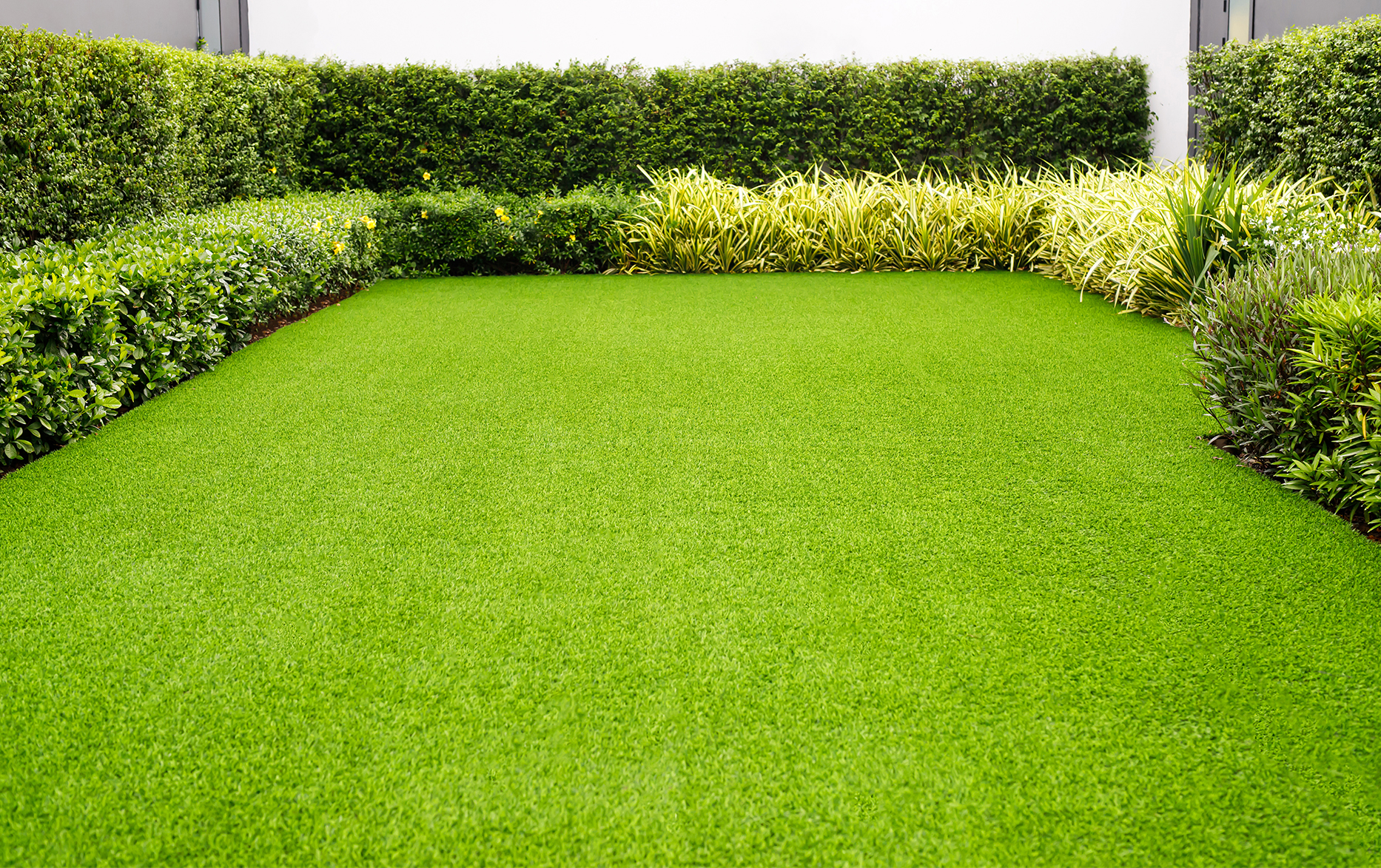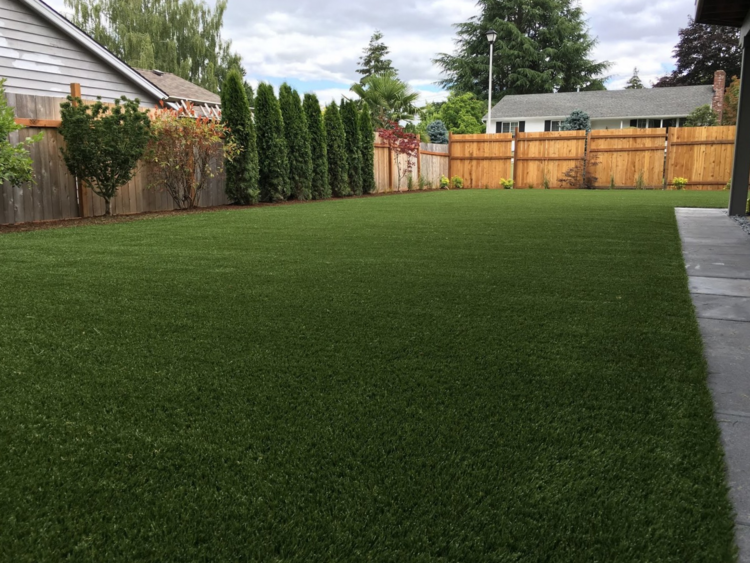Premier Phoenix Turf Companies Offering High-End Synthetic Lawn Products
Premier Phoenix Turf Companies Offering High-End Synthetic Lawn Products
Blog Article
Delve Into the Environmental Benefits of Opting for Synthetic Grass Solutions
The fostering of artificial lawn solutions provides a compelling possibility to deal with pushing ecological challenges. By considerably lowering water use and minimizing the application of unsafe chemicals, these alternatives not only promote sustainable landscape design yet also secure neighborhood ecosystems.
Water Conservation Advantages
Among one of the most substantial benefits of synthetic grass is its capacity to preserve water. Standard lawn lawns need substantial irrigation, especially in locations vulnerable to dry spell or water constraints. On the other hand, man-made turf does not need watering, significantly reducing the total need for water resources. This feature is particularly advantageous in deserts where water deficiency is a pushing issue.
By getting rid of the demand for normal watering, synthetic grass contributes to lasting landscape practices and aids reduce the ecological effect of too much water consumption. Moreover, the preservation of water encompasses the decrease of drainage, which can lead to dirt erosion and waterway air pollution.
Furthermore, the installment of synthetic grass permits homeowners and communities to allot water resources more effectively, concentrating on important uses such as alcohol consumption water and farming. The change in the direction of synthetic grass not only promotes accountable water use yet also lines up with more comprehensive ecological objectives targeted at protecting all-natural sources.
As areas significantly prioritize sustainability, the water conservation benefits of synthetic grass provide an engaging instance for its fostering in business and residential landscaping projects.
Reduced Chemical Usage
The shift to man-made lawn dramatically lowers the reliance on chemical therapies frequently utilized in natural grass maintenance. Traditional turf management generally includes the application of fertilizers, herbicides, and pesticides to promote development and control parasites. These chemicals can present threats to human wellness, regional wildlife, and the setting, contributing to soil and water contamination.
In contrast, fabricated turf removes the requirement for these harmful compounds. By reducing the release of synthetic substances into the community, artificial lawn promotes healthier dirt and water systems.
Moreover, the absence of chemical drainage related to man-made grass setups helps secure neighborhood waterways from air pollution, supporting water life and keeping biodiversity. Artificial turf companies phoenix. As areas increasingly focus on lasting practices, selecting synthetic grass presents a practical solution that aligns with ecological preservation goals. Via this change, home proprietors can enjoy rich eco-friendly areas without jeopardizing eco-friendly wellness, leading the way for a much more lasting future
Reduced Carbon Impact

In addition, the installation of synthetic grass can cause significant water preservation. All-natural grass require considerable amounts of water for watering, which not just includes to the carbon footprint connected with water extraction and therapy yet also strains local water resources. On the other hand, synthetic grass requires very little maintenance, needing no watering, consequently significantly reducing water use and its associated energy expenses.
In addition, the durability of synthetic grass contributes to its decreased carbon effect. With a lifespan of up to 15 years or more, the need for frequent substitutes is lessened, causing much less waste and reduced energy consumption in manufacturing and throwing away conventional yard choices. Generally, synthetic grass offers a lasting choice for environmentally mindful landscaping.
Environment Conservation
Habitat preservation is a vital consideration in the debate over landscape design selections, specifically when comparing synthetic grass to all-natural lawn. All-natural grass yards usually need substantial maintenance, consisting of using herbicides, chemicals, and fertilizers, which can adversely influence local communities. These chemicals can seep into the soil and waterways, damaging native vegetation and fauna and interrupting regional environments.
In comparison, man-made turf provides a possibility to minimize the environmental impact of landscaping. By choosing synthetic lawn, homeowners can lessen the disruption of natural habitats related to conventional yard treatment practices. Synthetic grass removes the need for dangerous chemicals, thereby protecting close-by wild animals and maintaining the integrity of surrounding communities. Moreover, the installation of man-made lawn can bring about the conversion of former yard locations right into even more biodiverse landscapes, such as pollinator gardens or indigenous plant areas, which can support regional wildlife.
Eventually, the shift to fabricated grass not only conserves water and decreases site here upkeep efforts however additionally cultivates a more unified connection between human activities and the natural setting, promoting habitat preservation in the process.
Long-Term Sustainability
Long-term sustainability is a vital variable in assessing the benefits of synthetic grass over traditional turf lawns. Among one of the most significant advantages of synthetic grass is its resilience; it can last approximately 15-20 years with minimal maintenance, whereas all-natural grass requires constant reseeding and substitute. This durability lowers the requirement for constant resources, such as water, fertilizers, and chemicals, which are essential for keeping a healthy and balanced turf yard.
Furthermore, artificial grass adds to a Get More Information decrease in carbon discharges associated with grass care equipment. Traditional yards usually need gas-powered mowers, trimmers, and blowers, all of which add to air pollution. Arizona artificial turf. On the other hand, synthetic lawn gets rid of the need for such tools, advertising a cleaner atmosphere
Moreover, the manufacturing of artificial lawn increasingly utilizes recycled materials, improving its sustainability profile. As makers embrace environment-friendly methods, the environmental impact of synthetic grass proceeds to lessen.

Verdict
The fostering of synthetic grass solutions provides significant environmental advantages, consisting of considerable water conservation, lowered reliance on dangerous chemicals, and a lower carbon footprint. Additionally, synthetic grass help in maintaining natural environments by decreasing land disturbance and promoting lasting sustainability with using sturdy products. Jointly, these variables underscore the potential of synthetic grass to add favorably to ecological health and wellness and provide a practical option to typical landscape design techniques in an increasingly resource-conscious globe.
In comparison, man-made lawn does not require watering, considerably lowering the general need for water sources. By minimizing the launch of synthetic compounds into the ecosystem, synthetic lawn advertises much healthier soil and water systems.
Moreover, the installment of fabricated turf can result in substantial water conservation. In contrast, artificial grass requires marginal maintenance, requiring no watering, thus substantially minimizing water use and its connected energy have a peek here prices.

Report this page